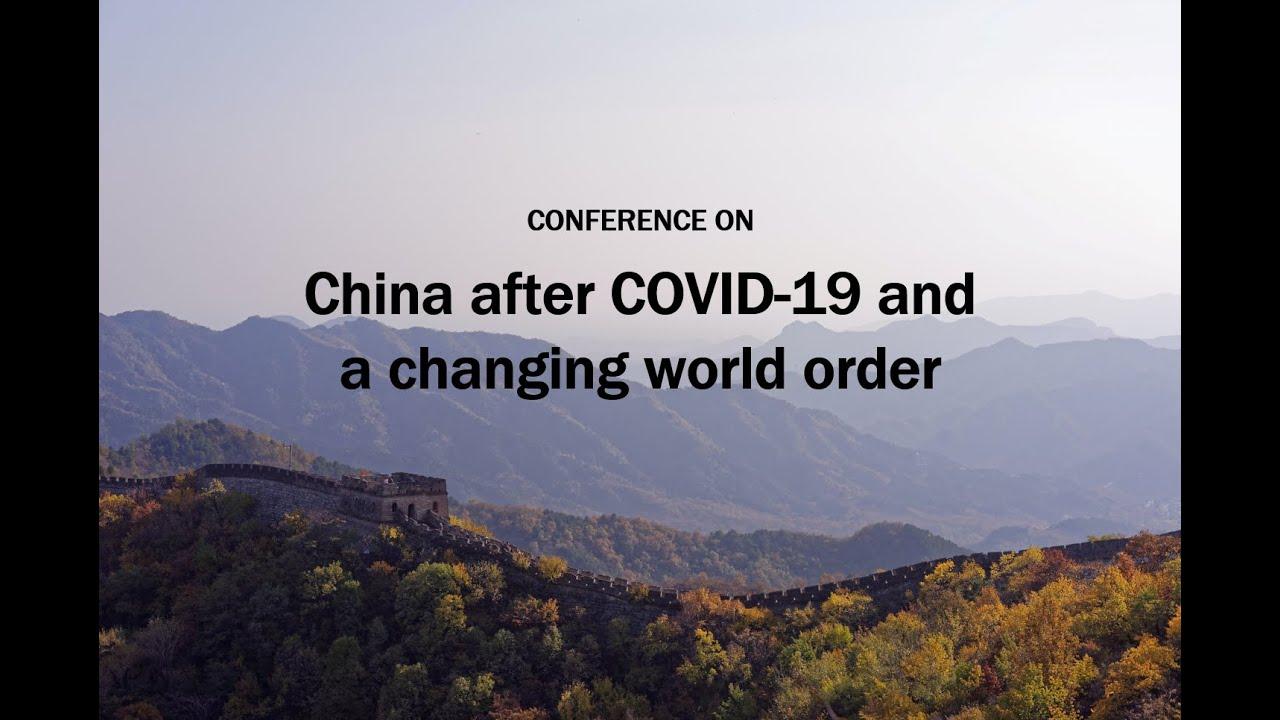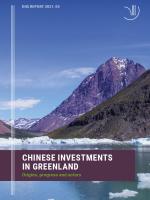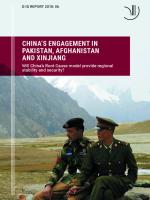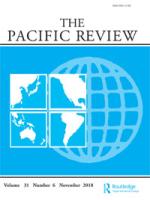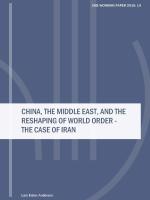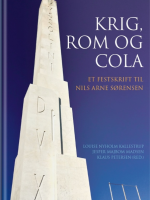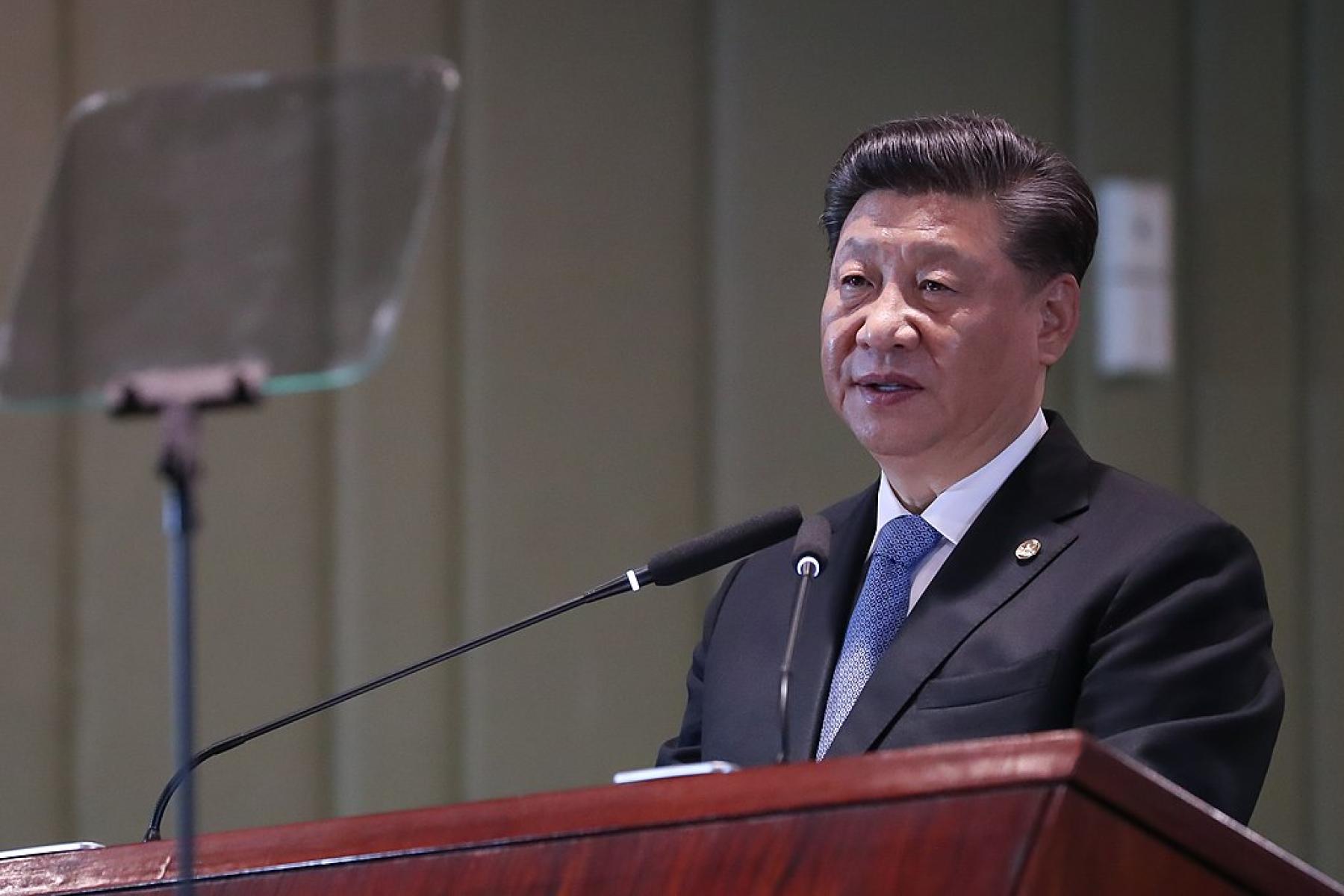Livestreaming
China after COVID-19 and a changing world order
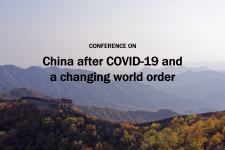
Only recording of the keynote speech available!
Friday 26 November 2021, 9.30-17.00
DIIS ∙ Danish Institute for International Studies
DIIS Auditorium
As the world gradually emerges from the health and economic crises brought about by the COVID-19 pandemic, it is time to reflect on one of the major actors in world affairs – China. We are standing at a historic juncture, where China’s domestic developments and its relations with other countries will have long-term impacts on world peace and development. Domestically, China is exploring a new way of development and governance. How China handles its domestic economic, political, social, and environmental challenges will have deep repercussions both at home and abroad. Internationally, there is a widespread feeling of uncertainty with the rise of China and the changing world order. China under Xi Jinping’s leadership is conducting a more assertive foreign policy, and smaller states are caught in the rivalry between the US and China. Yet, global challenges like the environment crisis, pandemics, nuclear safety, poverty and inequality can only be met by coordinated efforts. Not only great powers but also smaller powers have important roles to play in determining the future of the globe.
DIIS and Aarhus University, in collaboration with the University of Copenhagen, Copenhagen Business School, and Aalborg University, are organising this conference to gather researchers and postgraduate students in Denmark to share their China-related expertise, debate important issues, and discuss the implications for Denmark and beyond. It is the second in a series of conferences addressing China affairs from Danish and European perspectives by researchers located in Denmark.
Speakers
Aixa Y. Alemán-Díaz, PhD Fellow, Copenhagen Business School
Alexander L. Q. Chen, PhD Fellow, University of Copenhagen
Andreas Michael Østerby-Jørgensen, PhD Fellow, Aalborg University
Camilla T. N. Sørensen, Associate Professor, Royal Danish Defense College (RDDC)
Christian Göbel, University Professor, University of Vienna
Erik Baark, Professor Emeritus, Nordic Institute of Asian Studies
Hui Zhao, Senior Lecturer, Lund University
Jesper Willaing Zeuthen, Associate Professor, Aalborg University
Jun Liu, Associate Professor, University of Copenhagen
Jørgen Delman, Professor Emeritus, University of Copenhagen
Kasper Ingeman Beck, Postdoc Researcher, Copenhagen Business School
Kjeld Erik Brødsgaard, Professor, Copenhagen Business School
Kristian Fischer, Director, Danish Institute for International Studies
Lars Erslev Andersen, Senior Researcher, Danish Institute for International Studies
Liselotte Odgaard, Professor at Norwegian Institute for Defence Studies and Senior Fellow at Hudson Institute
Mads Vesterager Nielsen, writer at SupChina, Politiken, Zetland and World of Chinese'
Meina Jia Sandal, PhD Fellow, Aarhus University
Mette Thunø, Associate Professor, Aarhus University
Mikkel Bunkenborg, Associate Professor, University of Copenhagen
Naja Morell Hjortshøj, PhD Fellow, Aarhus University
Vivienne Shue, Professor Emeritus, Oxford University
Wen Xiang, Associate Professor, University of Copenhagen
Xing Li, Professor, Aalborg University
Xuan Li, Postdoc Researcher, Copenhagen Business School
Yang Jiang, Senior Researcher, Danish Institute for International Studies
Yi Ma, Postdoc Researcher, University of Copenhagen
Yue Guan, Assistant Professor, Aarhus University
Programme
09.30-10.00 Coffee, tea, and registration
10.00-10.05 Opening speech, Kristian Fischer
10.05-10.10 Welcome, Yang Jiang
10.10-10.40 Keynote speech (online): Re-imagining China (and China Studies) in the Post Post-Cold War, Vivienne Shue
10.40-10.50 Discussion
11.00-12.00 Parallel Panel 1 (at Auditorium): Domestic politics and governance - Chair: Kjeld Erik Brødsgaard
- Jun Liu & Hui Zhao, Privacy Lost: Appropriating surveillance technology in China’s fight against COVID-19
- Yue Guan & Christian Göbel, From Excessive Information to Selective Attention: How Citizen Input Is Used by Political Leaders in China
- Yi Ma, A hard impact of soft law in local China: Judicial activism in invoking the Hukou system reform policies to reduce discrimination against rural traffic casualties
- Mads Vesterager Nielsen, The Local Governance Response to pandemic: Observations from cross-provincial travels through lockdown China + the shequ (社区) virus response in Beijing and its implications for local governance practices
11.00-11.55 Parallel Panel 2 (at Seminar Room 1): Economic development and restructuring - Chair: Jørgen Delman
- Kasper Ingeman Beck, Financialization in the Chinese state-owned sector: new tools for economic governance
- Alexander L. Q. Chen, China’s New Normal and the industrial geography of its coastal-inland regions
- Yang Jiang, Economic Models and Socio-Politico Complexities
12.00-13.00 Sandwich lunch for speakers and audience (outside Auditorium)
13.00-14.00 Panel 3 (at Auditorium) Foreign policy and transnational relations (1) - Chair: Kristian Fischer
- Xing Li, Conceptualizing the China-US Rivalry in an Era of World Reordering
- Lars Erslev Andersen, The Manifest Destiny of China: Geopolitical ramifications of the Belt and Road Initiative
- Liselotte Odgaard, US-Chinese strategic competition: where does it leave Europe?
- Camilla T. N. Sørensen, US-China great power rivalry enters NATO: Drivers, debates and potential implications
14.05-14.55 Panel 4 (at Auditorium) Foreign policy and transnational relations (2) - Chair: Xing Li
- Mikkel Bunkenborg, Studying Chinese globalization through collaborative failures
- Mette Thunø, China’s New Fuming Twitter Diplomacy: Content and Discourses
- Jesper Willaing Zeuthen, How China left Greenland
15.10-15.50 Parallel Panel 5 (at Auditorium): Environmental sustainability and climate governance - Chair: Mette Thunø
- Jørgen Delman, China-US rapprochement in climate politics in the age of great power rivalry
- Yi Ma & Wen Xiang, Enforcing law through authoritarian environmentalism? State and non-state actors in China’s Environmental Public Interest Litigation
15.10-15.50 Parallel Panel 6 (at Seminar Room 1): The politics and social impacts of technology - Chair: Yang Jiang
- Xuan Li and Aixa Y. Alemán-Díaz, Socio-technical imaginaries of a knowledge economy: Insights from national policy instrument mixes in China and the United States
- Erik Baark, The Digital Silk Road and China’s Technological Globalization Strategy
16.00-16.50 Panel 7 (at Auditorium): Social, cultural and demographic changes - Chair: Yi Ma
- Meina Jia Sandal, Daigou and “Online Food Stalls” in Overseas Chinese Communities after COVID – 19: Network Business, Women’s Work, and the Female Economy
- Andreas Michael Østerby-Jørgensen, A Qualitative Exploration of Chinese People’s Perceptions of Unemployment
- Naja Morell Hjortshøj, Exploring Alternatives to “996”: Chinese University Students’ Motivations for Pursuing an Entrepreneurial Career
16.50-17.00 Concluding remarks
18.00 Conference dinner for speakers
Practical information
The conference will be held in English. The conference will also be livestreamed on this page - the video will show instead of the picture at the latest 10 min. before start. No registration required for livestream.
Participation in the Auditorium at DIIS is free of charge, but registration is required.
Contact
For questions, contact DIIS Event on phone: 3269 8787 or via e-mail: event@diis.dk
- Climate change and environment
- Oil, gas and minerals
- Defence and security policy
- Security technologies
- Danish and European foreign policies
- History and foreign policy
- World politics
- The politics of great and emerging powers
- Diplomacy and international organisations
- Urbanization
- Emerging economies
- Conflict and economy
Sign up
DIIS Experts



